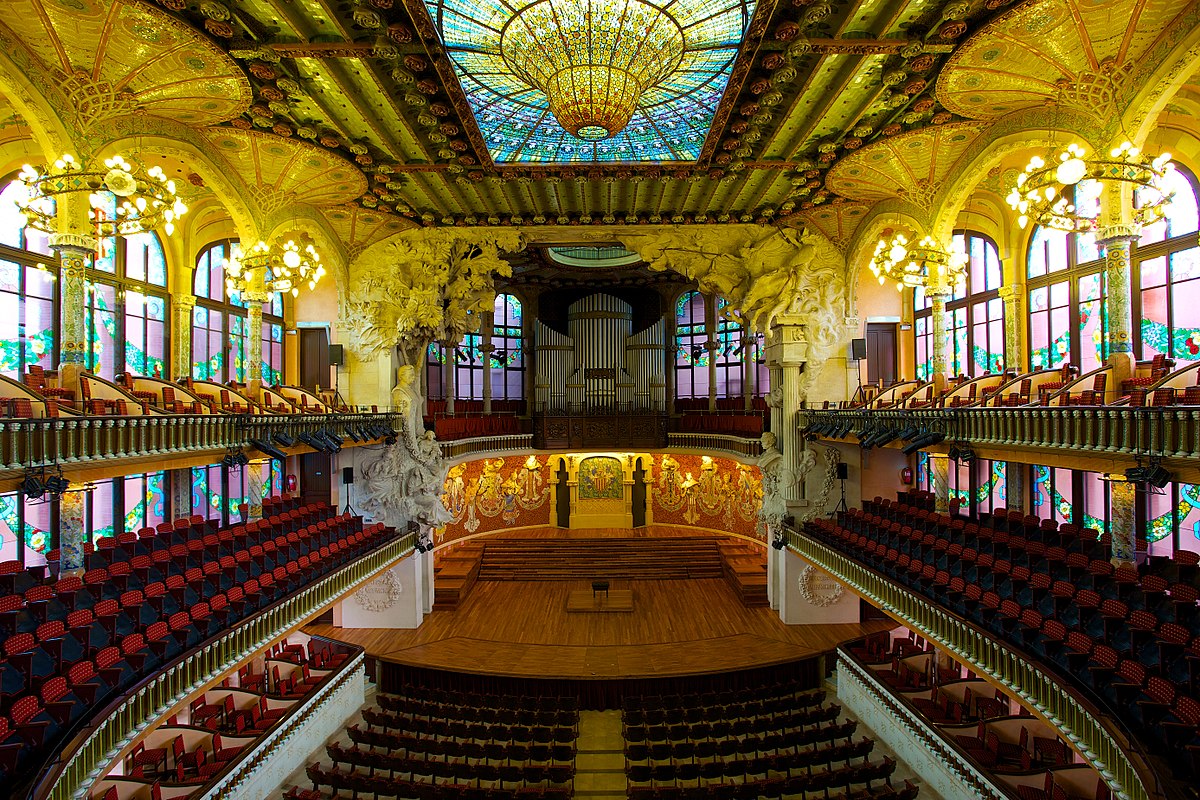Catalonia was thrust into the headlines last week amid a tumultuous attempted referendum regarding independence from Spain. For centuries, the sliver of land on the Mediterranean, once under Moorish control and now home to 7.5 million people, has alternated between independent republic, French protectorate, and Spanish region. Anchored by its capital, Barcelona, Catalonia has developed its own distinct language and culture.
All of this got me thinking about the music of Catalonia and its diversity of influences. Here is a brief sample:
Joan Brudieu (1520–1591)
Let’s start off with the madrigal, Ya Tocan los Atabales, by Joan Brudieu. Beginning in 1548, Brudieu was choir master at Seu d’Urgell Cathedral in northern Catalonia.
Joan Baptista Cabanilles (1644-1712)
Cabanilles, known as “the Spanish Buxtehude,” was active in Catalonia, as well as neighboring Valencia. The organ work, Tiento VII Partit de Mà Dreta Per Ge Sol Re Ut, opens with striking parallel voices:
Josep Galles (1761-1836)
Josep Gallés i Salabert was the organist at the Vic Cathedral in central Catalonia from 1777 until his death. Most of his compositions were lost in a 1936 fire at the Cathedral. Twenty-three keyboard sonatas remain. Here are two excerpts:
Isaac Albéniz (1860-1909)
Albéniz was born in the small town of Camprodon, near the French border. His Suite Española, Op. 47 for solo piano, written in 1887, honors Spain’s diversity. Each movement evokes a distinct region. (The second pays homage to Catalonia). Here is a recording by Alicia De Larrocha:
Enrique Granados (1867-1916)
Granados was born in Lleida in western Catalonia. Here is Alicia De Larrocha’s recording of his 1911 suite for solo piano, Goyescas, subtitled Los majos enamorados (“The Gallants in Love”):
https://www.youtube.com/watch?v=wmW5SBMQ_S4
Recordings
- Brudieu: Capella de Ministrers, Carles Magraner & Joan Brudieu Amazon
- Cabanilles: Joyas de la Organeria Castellana, Modest Moreno iTunes
- Gallés: The Musical Sun of Southern Europe II, Rafael Puyana Amazon
- Albéniz, Suite Española, Op. 47, Alicia De Larrocha iTunes
- Granados: Goyescas, Alicia De Larrocha iTunes
Photograph: the interior of Barcelona’s Palau de la Música Catalana


I think there is a measure of historical revisionism at work here to re-label some of the principal exponents of the musical movement known as Spanish Nationalism as somehow Catalonian. Composers such as Albeniz and Granados were certainly born in Catalonia but they were Spanish as can bee seen in their musical influences from across Spain. One should take care in narrowing such cultural influences. For context consider that while Aaron Copland was undeniably born in Brooklyn, NY you would be more likely to call him an American composer than a New Yorker.
My intention was to focus on composers who were natives of the Catalonia region. I think your analogy with Copland is right on in the case of Albeniz and Granados who surely identified with Spain rather than a strictly regional style. In some ways, Ravel could even be called “Spanish.”